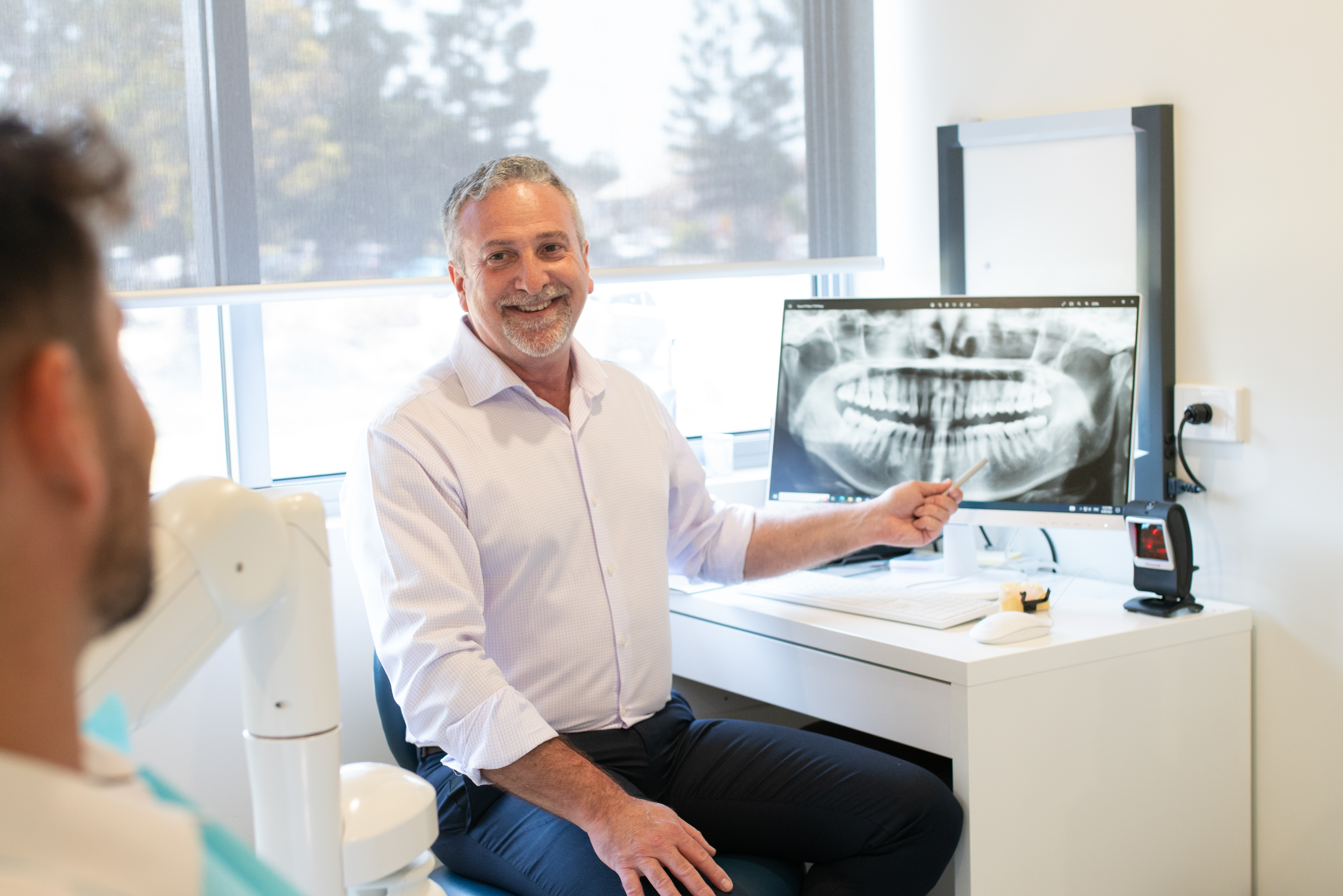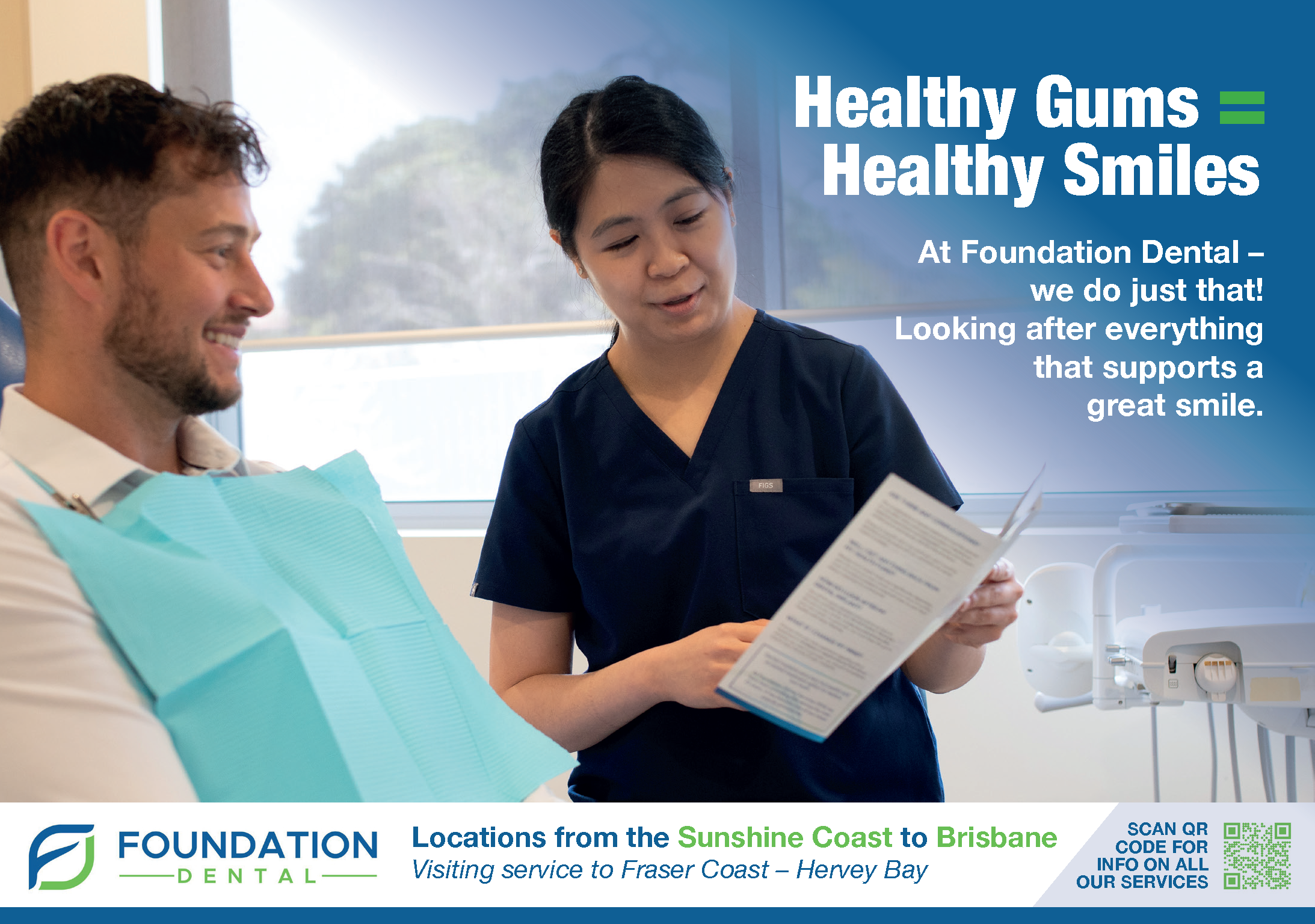
2 minute read
Remember to “Check the gums, please!”
BY DR JOHN CARRIGY
DO EVERYONE’S GUMS BLEED WHEN THEY BRUSH? NO.
Bleeding gums, although common, are not normal. They can be caused by a whole range of underlying problems. Some are reasonably harmless, like incorrect brushing. Some are more sinister as they can be a symptom of general poor health. If you have bleeding gums, it is wise to visit your dental team so they can carry out a thorough examination and diagnose the cause.
I HAVEN’T HAD ANY FILLINGS OR ACCIDENTS, SO I CAN’T LOSE MY TEETH – RIGHT? NO.
Although dental cavities and trauma are common and painful conditions for many people and can lead to tooth loss, Periodontitis (gum disease) often becomes the major threat to tooth survival as a person ages. Bleeding gums, bad breath, drifting or loose teeth, gum recession, and “looking long in the tooth” can all be signs that you may be suffering from this silent dental condition.
IS IT TRUE THE HEALTH OF YOUR MOUTH IS LINKED TO YOUR GENERAL HEALTH? YES.
The mouth is part of the body, so, logically, general illness, malnutrition, and syndromes affecting the body will affect the mouth. Similarly, poor oral health is increasingly linked to poorer general health outcomes. Diabetes and cardiovascular disease may be negatively impacted by poor oral health.
IS NUTRITION IMPORTANT FOR YOUR TEETH AND GUMS? YES.
We chow down on various foods daily, causing a lot of wear and tear on the oral tissues, which are one of the hardest-working parts of the human body. To ensure our oral health is at an optimum, we need to eat a well-balanced diet and maintain good oral hygiene.
I HAVE A GUM PROBLEM. SHOULD I SEE A PERIODONTIST (A GUM SPECIALIST)? POSSIBLY.
Gum problems are very common and easy to treat if picked up early. The best first step is to visit your general dental team or dental hygienist and tell them of your concerns. They will review your radiographs and conduct a clinical examination to check for developing gum problems. They may refer you to a Periodontist if they believe your issues are extensive or severe. Next time you see your dental team, ask them to “Check the gums, please.”











